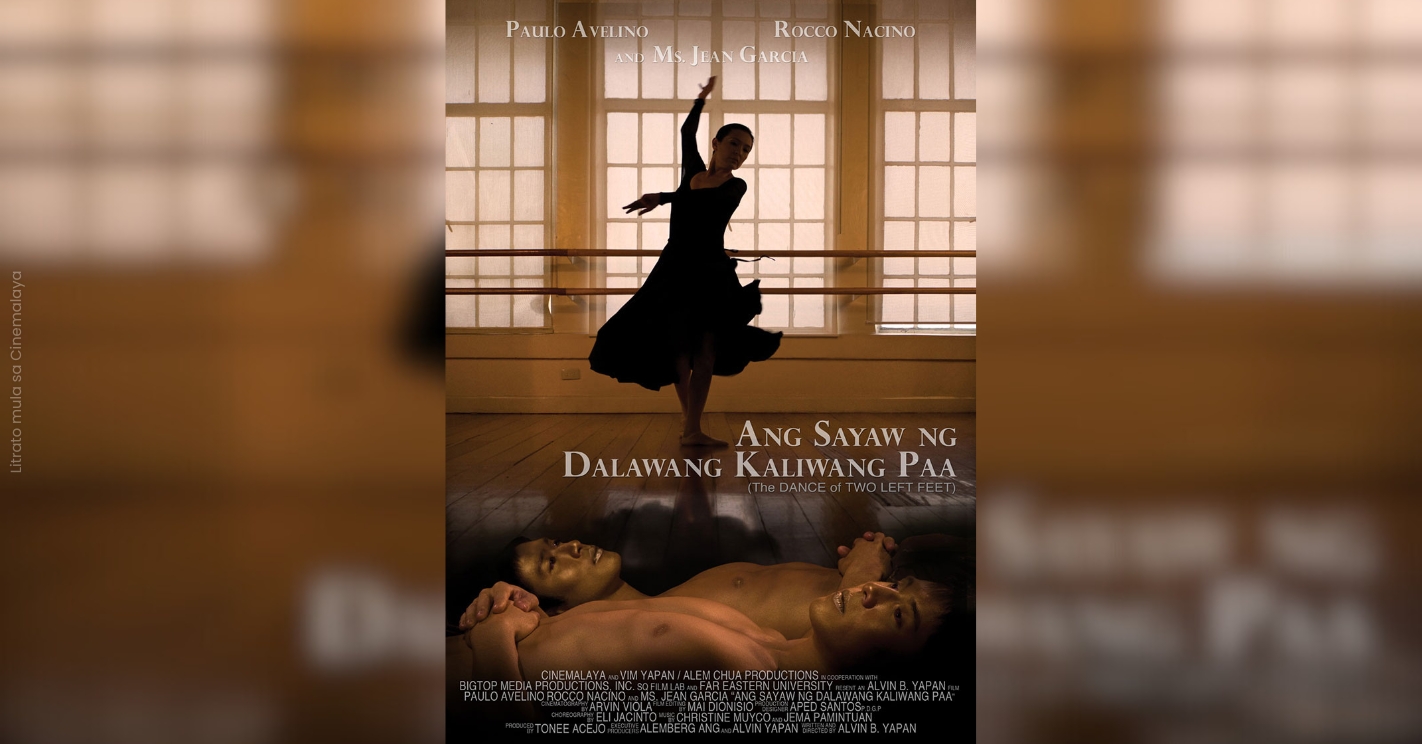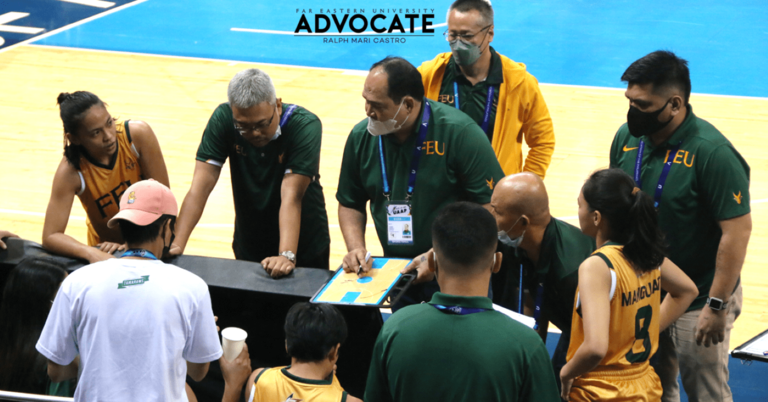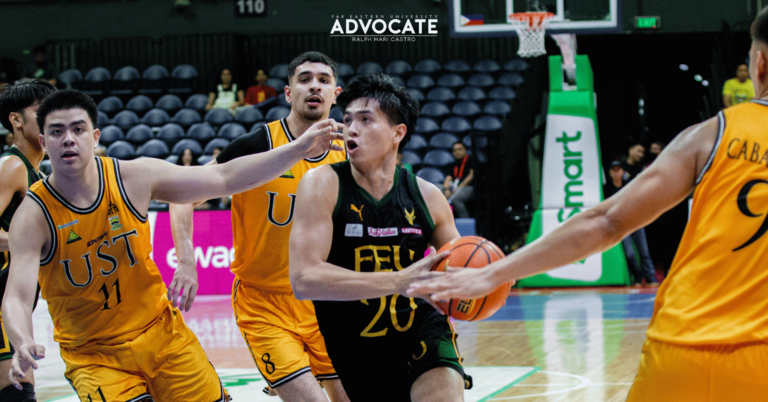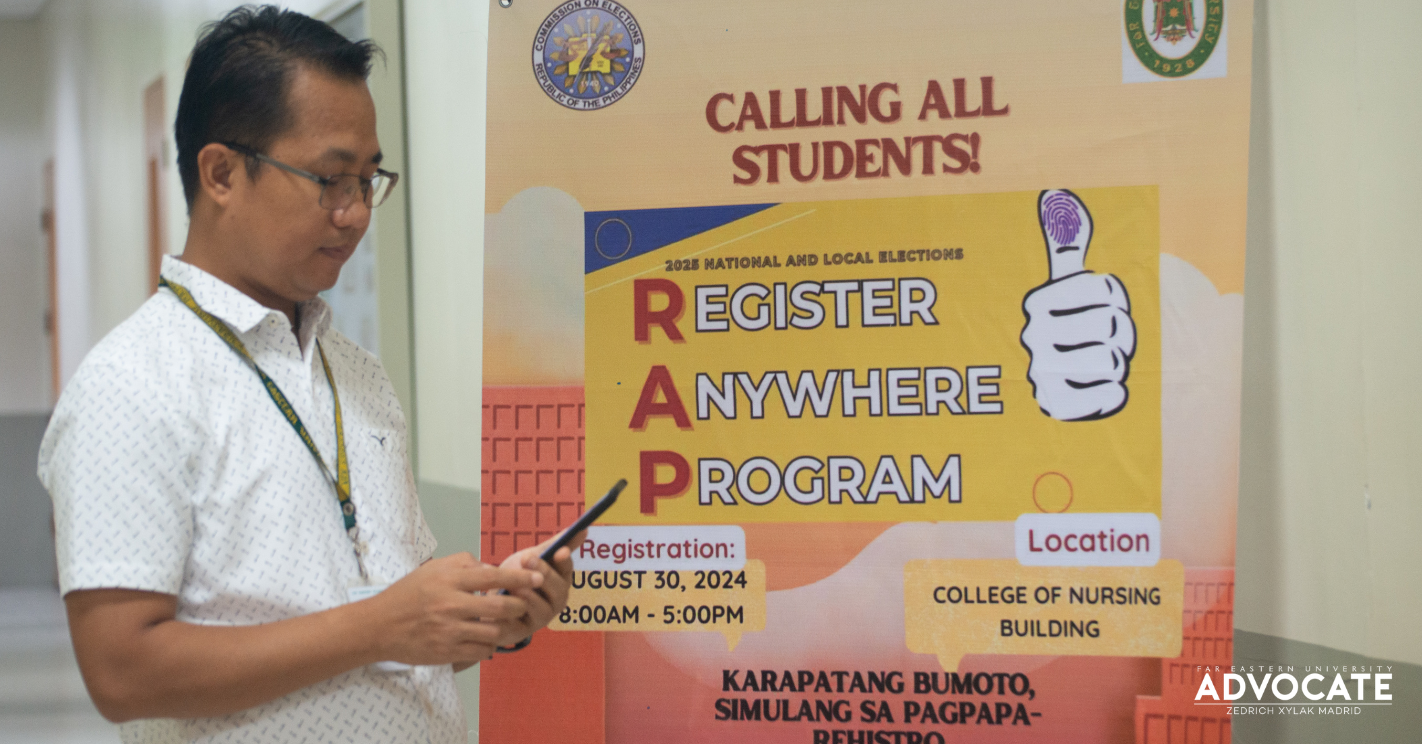
Another Path
- June 22, 2017 19:29
FEU Advocate
March 23, 2021 06:51

When the relationship is not working anymore, will people choose to stay for the sake of saving it or will they gather up the courage and leave?
Due to pandemic, the suspension of classes in Far Eastern University (FEU) brought many plans and activities to a complete standstill to prevent the proliferation of the coronavirus disease 2019 (COVID-19) virus. With this, it has tremendously affected the dynamics and medium of theater play by transitioning to a virtual set-up.
For 2021, FEU Theater Guild (FTG) released an online production entitled “Kung Paano Maghiwalay” with their play directed by Dudz Teraña. The play was divided into episodes which were scheduled to air online all Sundays from February 21 to May 22 at 7:00 p.m.
Teraña—FTG’s artistic director—is also a senior artist-teacher, director from Philippine Educational Theater Association (PETA), and a well-seasoned professor in FEU communication arts department. He also dabbles his time teaching in Cornerstone Entertainment Inc., a talent management that handles renowned Filipino artists such as Aaron Villaflor, the former Miss Universe 2018 Catriona Gray, and the like.
Love Lingers in Moments of Separation
The play was written by George de Jesus III and it debuted as a stage reading back in 2008 and was later directed by Teraña himself. FTG has already produced and showed this play in FEU back in 2019, so some of the students may have seen this play before. Each episode of the play depicts different types of love, relationships that led to breakups, unwrapping different stories, and circumstances as to why people choose to let go rather than stay in their relationships.
‘Kung Paano Maghiwalay’ depicted the rock bottom of different kinds of relationships from friends, family members, and romantic partners that ultimately led to a poignant breakup. It revealed how insignificant issue holds more weight and the subdued desire to part ways can unexpectedly burst out.
In an interview with FEU Advocate, Direk Teraña expressed that the play does not entirely circle around romance, it talks about human emotions and its message about relationships in general. “The idea of para ka lang naninilip ng nag-uusap (The idea of [the play] is like gazing to the conversations of normal people),” he explained.
It successfully conveyed the many layers of relationships that helped the 12 people arrive at the decision to separate. Each couple has their own stories, struggles, and downfall that are sewn into a bittersweet play. Since their lives are intertwined, we were able to see the common denominator and that was the failure to sustain love.
“The play talks about love being dynamic. It takes on one form after another; mirroring the type of love that we give and receive with different people… The beauty of the play is in the way it shows how the couples break up, so you begin to appreciate how they came to be in the first place [to be shown in Act 2],” said Hezekiah Bilang, sound designer of the play and current marketing manager of FTG when he shared his sentiments on what the play is all about.
Distinct types of breakup were shown that gave us an emotional roller coaster. Every episode has its own way to hurt you to the core like many years of commitment that went to waste; shallow reasons that triggered the end; unspoken concerns that became louder; and clinging to someone that does not see you in their future anymore.
What is good about the play is that every single scene was relatable especially for the Millennials and Generation Zs. They were able to show the not-so-pretty side of every relationship that mostly leads to breakups: the falling out of love, the toxicity, and the nearing end of a once beautiful relationship.
The characters were vibrant and they were able to portray their roles and characters well to the point where the audience can definitely feel their emotions even on screen, despite facing several challenges for their production.
Play Production Amid Physical Boundaries
Jelrich Tarun, the actor who played the role of Hector, Gab’s boyfriend in Act 1 Scene 4: “P*tangina mo!” said that the challenges that he and his co-actors encountered were the lack of physical contact, because of that they had difficulties of being in-sync with their co-actors in the scenes, and how will they carry out their roles properly with emotions that not just their co-actors would feel, but the audience as well.
When asked about how they prepared for their role, Tarun said that it was not that hard to do portray their roles since they have already performed this play two years ago so they already have the initial script analysis and the three-dimensional character sketch, and they would hold series of meetings with their co-actors to practice their scenes.
“Pinaguusapan namin kung ano pa ‘yung discoveries namin, ganiyan, ‘yung arc nung character, ‘yung pinagdadaanan ng character ba’t sila naghiwalay, bakit sila gano’n maghiwalay, [at] bakit gano’n ‘yung sinasabi nila sa isa’t isa… ‘yung mga gano’n ‘yung mga kailangang i-discuss para palalimin ‘yung character saka ‘yung story mismo and ‘yung scene (We would talk about our discoveries, the character arc, what were the characters going through, why they broke up, why did they break up like that, [and] why they said those things to each other… These are the things that we needed to discuss to deepen the character, the story, and the scene),” Tarun explained.
Although the play was going to be aired online, Tarun was thrilled when he first heard of the news that they were going to do an online production of ‘Kung Paano Maghiwalay,’ to the point wherein he never thought of the challenges that they may encounter in doing in the process. He said he was just happy to be back in the industry doing acting and bringing entertainment and joy to people again. He even said that being a theater actor is his source of life.
Another cast from the play, Hanna Pelobello, the actress who played the role of Gab, also shared her sentiments about the challenges that they encountered in the production of the play. She said that it was easier to communicate online because of the internet convenience, however, the only huge inconvenience for them was, in her own words, “’yung personal endeavor ng bawat-isa. Yung schedule, ‘yung time (the personal endeavor of each one of us. The schedule, [and] the time).”
Pelobello also explained that they were able to work together to make their respective roles effective even without being physically there with each other because with the help of their current members, they had the chance to read and talk via Zoom.
FTG members were the ones who organized and prepared everything including their schedules of virtual meetings. She also said that the good thing about the production was the same cast who played it two years ago.
Everyone already had their ideas and notes from the director during their first run so they were able to carry out the production well.
Just like Tarun, Pelobello said she was also happy to be given the opportunity to play her part and to continue doing her passion even in the middle of a pandemic. She claimed that the production was challenging because it became a one-man production but she said it was also a fun experience for her.
No Perfect Way to Let Go
Marielle Barrios, who played Lou, Kat’s girlfriend in Act 1 Scene 6: “It’s the best thing to do at this point” shared thoughts on how to tell when it is time to break up. She stated that there are different reasons a couple may need to break up. “My character, Lou, said in one of her lines, ‘I think you’d know when it's over. You'd feel it.’ I believe that. Once you feel you are no longer happy and once you started asking yourself if your partner is still the right one for you, I think that's it,” she added.
Barrios also emphasized that there is no perfect formula for a break-up because whatever way of ending the relationship may be, you lose—but the most important thing is you let yourself love.
On the other hand, Portia Barrientos, who played Kat, pointed out her perspective about the purpose of the play. “For me kasi ang nais ipakita ng play ay ‘yung iba’t ibang uri ng hiwalayan sa relasyon, may mababaw na dahilan, may malalim, may masakit, may casual, merong mutual decision, meron namang may naiiwan at nang-iiwan (For me, what the play wants to show is the different types of breakup in a relationship, there is for a superficial reason, there is a deep one, there is very painful, there is only casual, there is a mutual decision, and there are those who are left behind and those who leave),” she articulated.
Barrientos then stressed that respect is vital in every relationship. Once it is gone, the rest will follow like a domino effect. Therefore, love is not only a feeling, but also a responsibility and a decision.
The meaningful message that the play would like to impart to the audience is to never be afraid of loving someone even if there is no guarantee that it will stay for the long run. Mustering the courage to end a relationship is always the hardest part, but sometimes—it is the only way to grow.
Although the play unravels how the various facets of love come to an end, it does not dictate the best way to break up. We face these circumstances differently just like the life stories of these 12 people. Some of the separations we are totally familiar with because we experienced it first hand, some are novel to us. Maybe these are the same situations that your parents and friends had, maybe you have witnessed the same arguments before on strangers passing by.
At the end of the day, what still counts is how much you loved and gave a part of yourself to someone. No matter how painful the ending is, the beauty and joy caused by these relationships will remain. It might fade, stay hidden, or abandoned, but it will never be lost.
Making an online production happen amid COVID-19 is difficult, but FTG did not let it stop them from creating a masterpiece that will touch everybody’s heart. Allowing the audience to understand the essence of the play regardless of the physical barrier proves their dedication for theater arts.
“Online theater productions are a way of letting people know that despite of not being able to be on stage, artists are willing to go extra mile to produce, perform and continue their passion,” Barrios said, which represents the whole production team’s utmost commitment to continue telling stories during the most unlikely of times.
The virtual production of 'Kung Paano Maghiwalay' can be watched for free on FTG’s Facebook page. Let us continuously support our local artists and fellow Tamaraws who constantly give their hearts in their thought-provoking craft.
-Rafa Jane Galeon and Maria Leonora Roja









